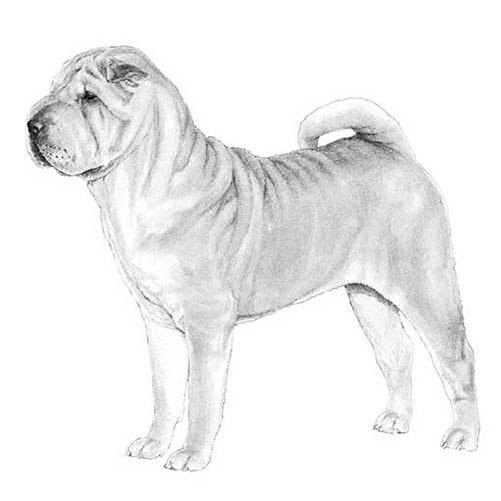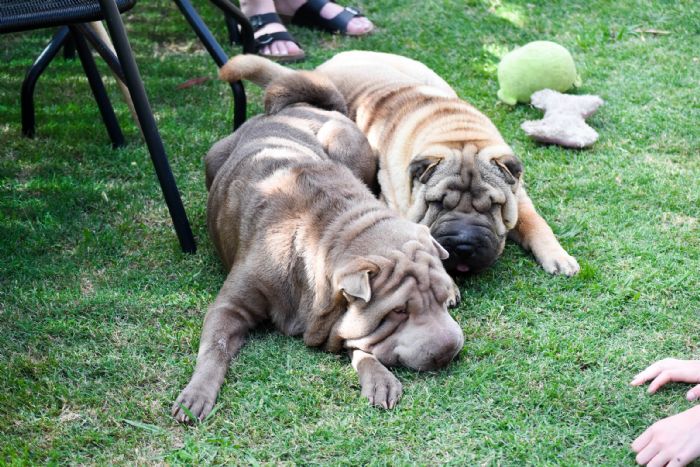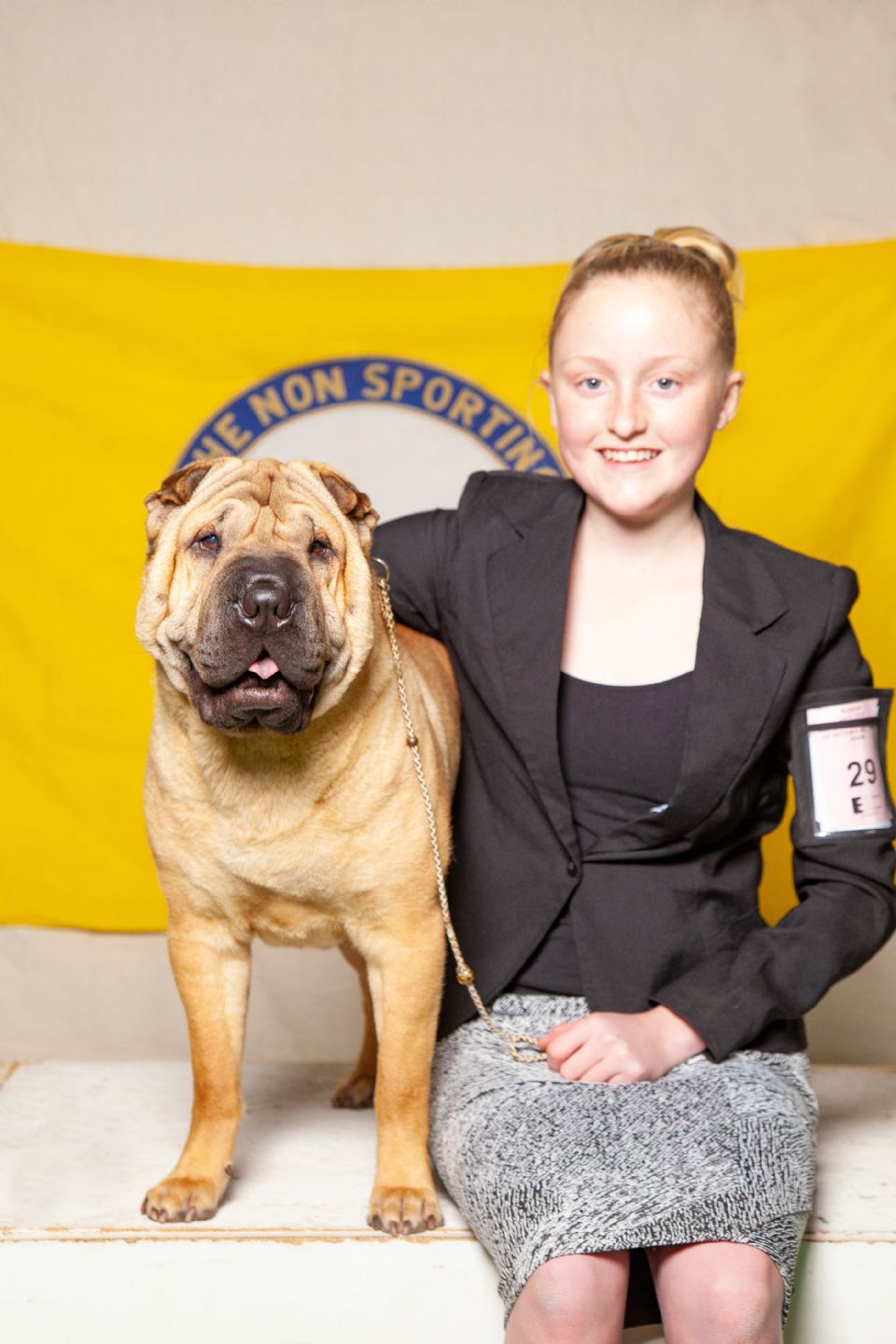Shar Pei Breed Standard

Group: Group 7 (Non Sporting)
General Appearance: Alert, active, compact, short coupled, squarely built. Dogs larger and
more powerful than bitches.
Characteristics: Relatively loose skin, frowning expression, harsh bristly.
Temperament: Calm, independent, very affectionate, and devoted to people.
Head And Skull: Relatively large but not disproportionate to the body, skull flat, broad,
moderate stop. Length from nose to stop approximately equal to length
from stop to occiput. Moderate wrinkle on forehead and cheeks. Muzzle
moderately broad and full with no suggestion of tapering. The lips and
top of muzzle may be slightly padded. When viewed from front, bottom
jaw appears wider than top. Nose large, wide, preferably black but any
colour conforming to general coat colour permissible.
Eyes: Dark, medium size, almond shaped with frowning expression. Amber
and lighter colour permissible in paler shades. Function of eyeball or lid
in no way disturbed by surrounding skin, folds or hair. Any sign of
irritation of eyeball, conjunctiva or eyelids highly undesirable. Free from
entropion.
Ears: Very small, rather thick, equilaterally triangular in shape, slightly
rounded at tip and set high on the skull with tips pointing towards eyes,
set well forward over eyes, wide apart and close to skull. The tips and
edges may turn up. Pricked ears highly undesirable.
Mouth: Tongue, roof of mouth, gums and flews: solid bluish-black is preferred.
Solid pink tongue undesirable. Dogs with self-coloured pigment and
amber to light brown eyes would be expected to have a lavender
tongue. Teeth strong, with a perfect, regular and complete scissor bite,
i.e. the upper teeth closely overlapping the lower teeth and set square
to the jaws. Padding of lower lip should not be so excessive so as to
interfere with the bite.
Neck: Medium length, strong, full, set well on shoulders, with some loose skin
under neck permitted, but this should not be excessive.
Forequarters: Shoulders muscular, well laid and sloping. Elbows close to body.
Forelegs straight, moderate length, good bone; pasterns slightly sloping,
strong and flexible. Forelegs completely free from wrinkle when mature.
Body: Height at withers approximately equal to the length from point of
shoulders to point of buttock. Depth of brisket approximately half of
height at withers. Chest broad and deep, underline rising slightly under
loin. Back short, strong. Topline dips slightly behind withers then rises
over short, broad loin. Adult dogs should display moderate wrinkling
over shoulders and base of tail. Excessive skin on body when mature
highly undesirable.
Hindquarters: Muscular, strong; moderately angulated; hocks well let down without
excessive wrinkling or thickening.
Feet: Moderate size, compact, toes well knuckled.
Tail: Rounded, narrowing to fine point, base set very high. May be carried
high and curved; carried in tight curl; or curved over. Lack of, or
incomplete, tail highly undesirable.
Gait/Movement: Free, vigorous and balanced, rear single tracking is normal at a fast trot.
Stilted gait undesirable.
Coat: Extremely harsh coat, straight and off-standing on the body but flatter
on the limbs. No undercoat. Length varies from short and bristly, under
1.25 cm ( half an inch) or longer and thicker, between 1.25 cm ( half an
inch) and 2.5 cm (one inch), but still off-standing and harsh to the touch.
N.B. No particular coat length within the accepted length should be
preferred above the other. Never trimmed.
Colour: All solid colours except white are acceptable. Frequently shaded on tail
and back of thighs with lighter colour.
Sizes: Height: 46-51 cms (18-20 ins) at withers.
Faults: Any departure from the foregoing points should be considered a fault
and the seriousness with which the fault should be regarded should be
in exact proportion to its degree and its effect upon the health and
welfare of the dog.
Notes: Male animals should have two apparently normal testicles fully
descended into the scrotum.
(Last updated: 09 Oct 2012)
Kennel Club, London 1994
KC amended June 1998
Effective in Australia January 2000
FCI Standard No 309
Image above taken from The Chinese Shar Pei Club of America

Image above of Sailor and Odin relaxing with the family
